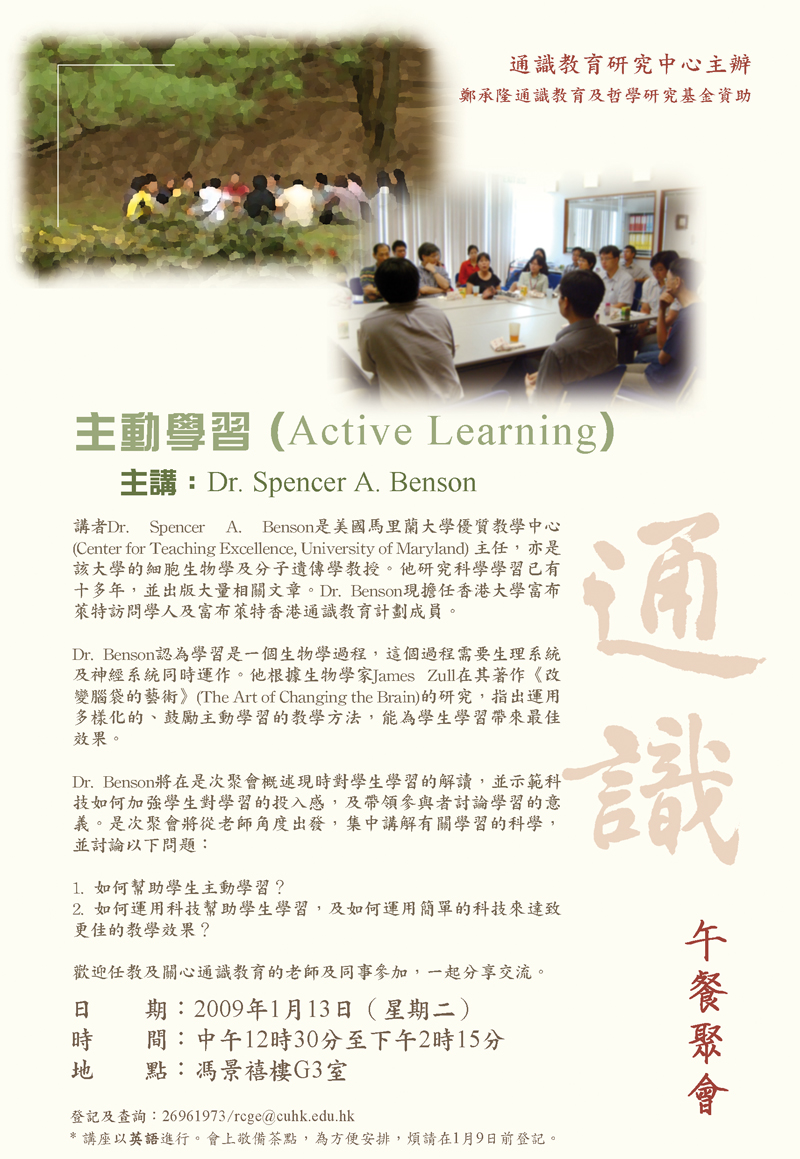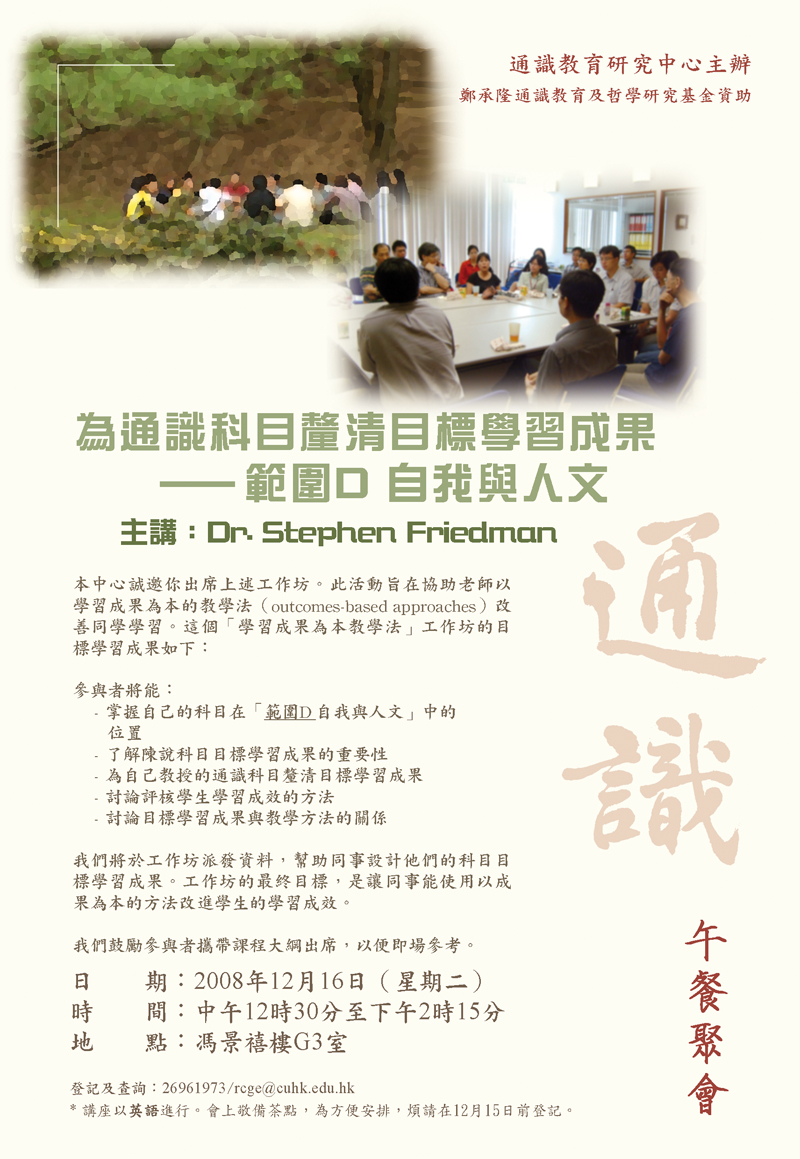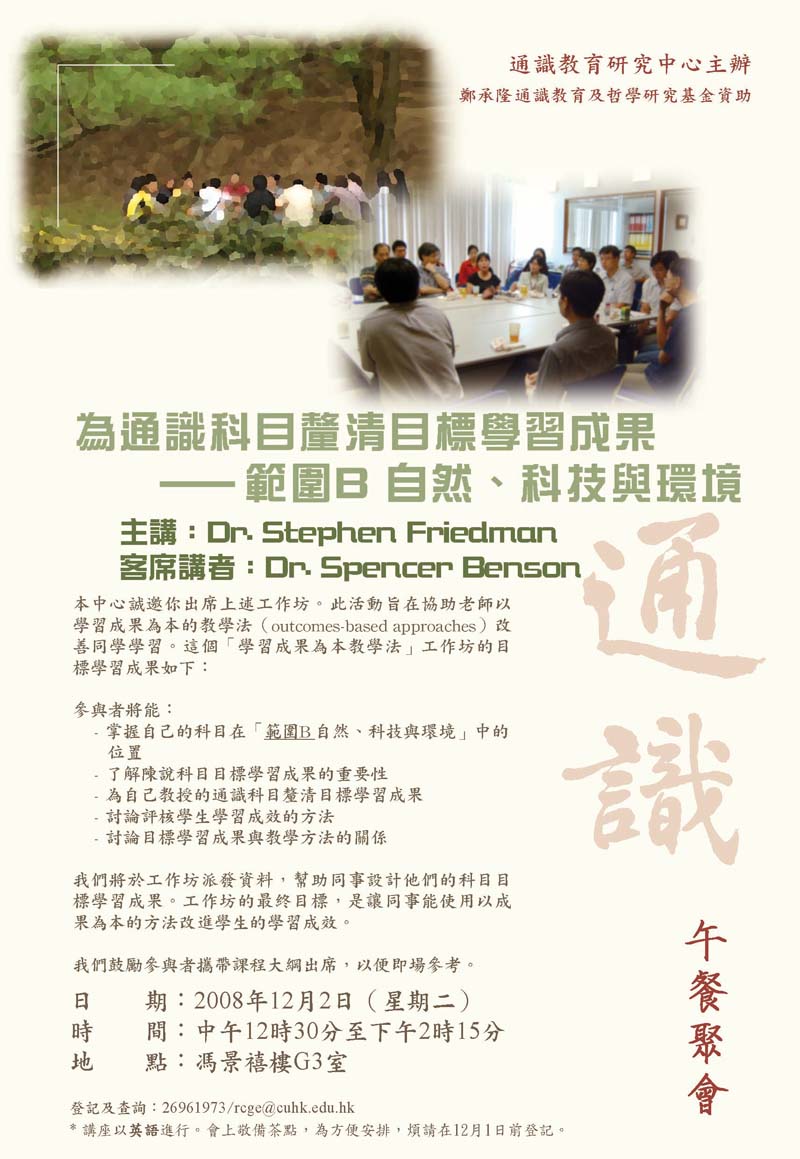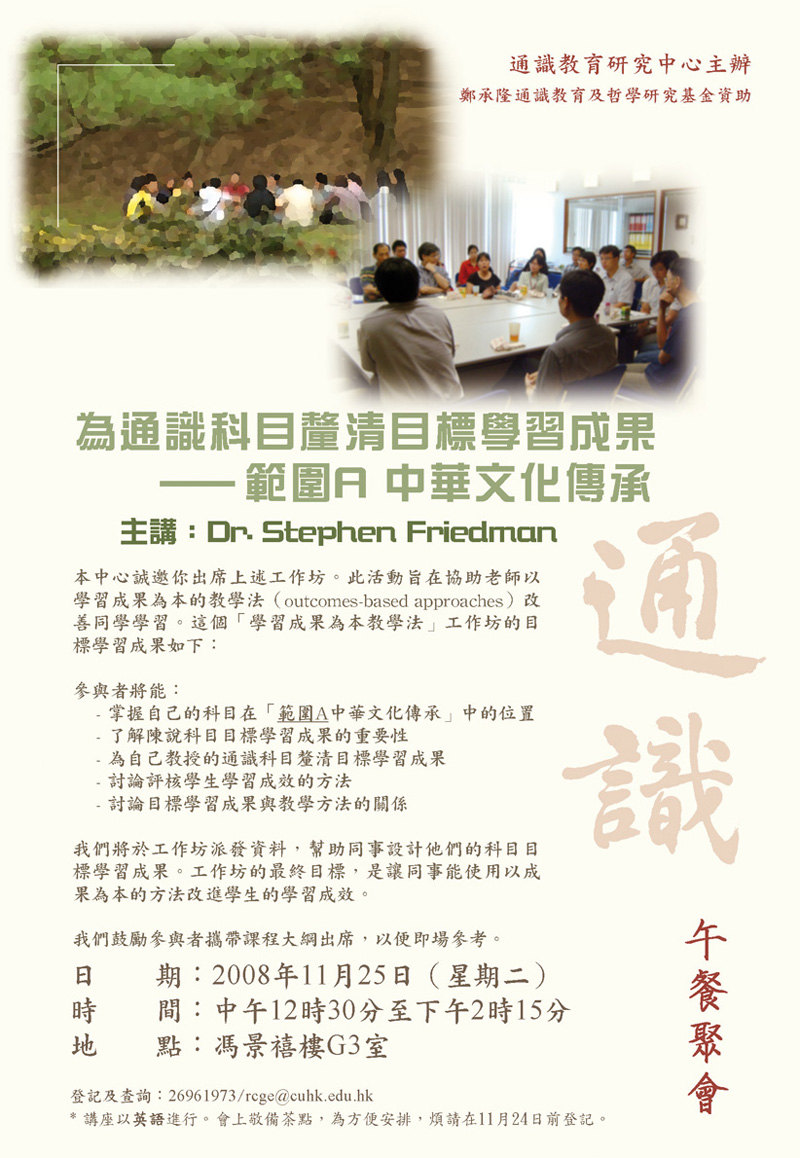Using The Symposium in the General Education Classroom
-- One non-philosopher’s approach to teaching a classic of philosophy
Date: 14 November 2008 (Friday)
Speaker: Prof. Deborah A. Martinsen (Associate Dean of Alumni Education, Adjunct Associate Professor of Slavic & Former Dean of the Core Curriculum, Columbia University)
How does a professor of Slavic, one who claims to have no expertise in Plato or in philosophy, teach a philosophical work by Plato? What happens when a classic is removed from its home department and taught in a general education class? How can it be taught? What will students learn?
As a Slavist, Prof. Martinsen brings her training in language and literature to bear on her Core Curriculum classes. In fact, the multi-disciplinary Core Curriculum staff is the pride of Columbia University. Each year, the Core brings together professors from history, classics, comparative literature, political science, philosophy, anthropology, psychology, etc., to teach a set of multi-disciplinary classics.
Columbia’s celebrated Core Curriculum, the result of ninety years of development, is in every way a good model for university general education. The OUGE is honored to host a seminar by Prof. Deborah Martinsen, who has taught in and led the Core program at Columbia for many years. In her new position as Associate Dean of Alumni Education, she is extending Core education to alumni with “Core nostalgia” and to their family and friends suffering from “Core envy.”
Whether you are interested in general education as a whole or simply curious about a Slavist’s approach to The Symposium, we cordially invite you to join us for the seminar. Prof. Martinsen will lead a discussion on The Symposium as a Core Curriculum class. The Hackett edition of the dialogue will be used. While a few copies will be available for sharing by the audience, you are welcome to bring your own copy of any English translation with line references in the margin.
Columbia U’s Core Curriculum in Action: An Eyewitness Report

Columbia U’s Core Curriculum in Action: An Eyewitness Report
--What We Saw at Its Get-go and Where We Go from There
Date: 4 November 2008 (Tuesday)
Speakers: Dr. Wong Wing Hung and Dr. Chiu Chu Lee (Office of University General Education)
For New York Times film critic David Denby, Columbia University’s Core Curriculum was such a rewarding experience he took it twice, the second time being thirty years after his graduation. The second attempt turned out even more rewarding and timely; he was riding the waves of confusion that were contemporary living and middle age.
For any college graduate in the US, Columbia U’s Core Curriculum can be a cause for envy because even in this country where “general education” was first conceived and most extensively developed, few universities now go so far as to assign over 43 credits to a core curriculum that is “general education” in its full sense: “education—or common intellectual experience—for all.”
As for the two of us who, inspired by our own experience with General Education at CUHK—as recipients and subsequently as providers—to accept the challenge of setting up the new GE Foundation Course targeting 3,400 freshmen in 2012, a visit to “the other CU” marked a happy point of departure.
For three weeks in early fall this year, we were guests at Columbia U’s Office of the Core Curriculum. We were there to observe the kick-off of the Core program in all its practicalities, attending student orientation and faculty lectures, talking to faculty members and administrators, eavesdropping on training sessions for new teachers, and auditing Core classes on politics, literature, music, art, and science. We are eager to share with you what we saw and learnt, and hear your response to our new reflections on the GEFC program regarding its teaching, staffing, and syllabus design.
 Presentation Powerpoint (login required)
Presentation Powerpoint (login required)
Assessment for Learning

Assessment for Learning
Date: 6 October 2008
Speaker: Dr. Stephen Friedman (University of Wisconsin-Whitewater)
Can programme assessment truly inform teaching and enhance learning? The University Grant Council (UGC) is promoting outcomes-based approaches (OBA) as student-centered and a tool to improve teaching and learning. However, as pointed out by a UGC consultant, gains through OBA “have only been achieved through deliberate and balanced approaches that reflect stakeholder values and perceptions, and that keeps the ultimate goal of improving student learning clearly in mind. Conceptual reification and rigidity in implementation will always be the worst enemies of a thoughtful outcomes-based approach.”
In this session, Visiting Scholar Dr. Stephen Friedman will provide an overview to an outcomes-based approach and programme assessment; with a special focus on how and under what circumstances can assessment inform teaching and learning.
About the Speaker
Dr. Stephen Friedman is Professor of Educational Measurement and Statistics at the University of Wisconsin-Whitewater. His work on General Education assessment began in the mid-90s and has published widely on GE assessment ever since. Dr. Friedman is now visiting CUHK as a Fulbright Scholar under the Fulbright HK General Education Program.
 Presentation Powerpoint (login required)
Presentation Powerpoint (login required)
 Discussion Summary (login required)
Discussion Summary (login required)
![]() Presentation Powerpoint (login required)
Presentation Powerpoint (login required)![]() Discussion Summary (login required)
Discussion Summary (login required)

















